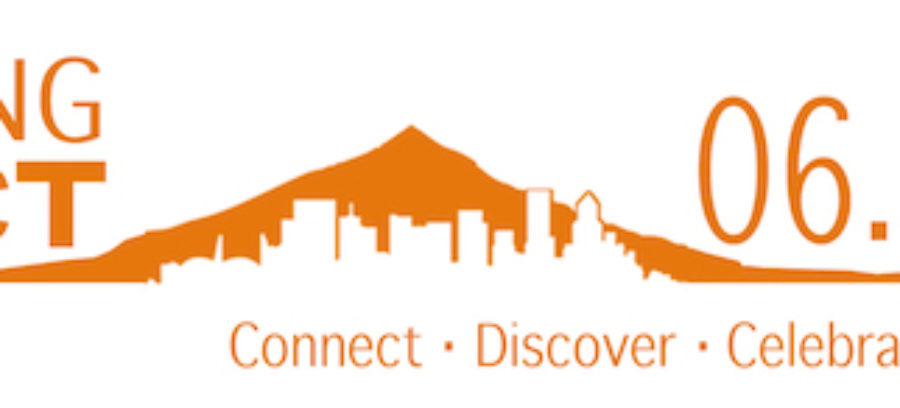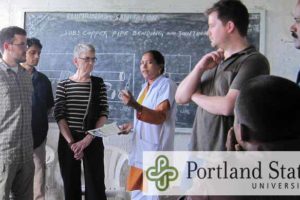We had a great time at Friday’s Elevating Impact Summit, hosted by the Impact Entrepreneurs at Portland State University. Many Portland B Corps were at the Gerding Theater at the Armory, including Sustainable Harvest, the recipient of the Impact Entrepreneurship Award.
The Elevating Impact Summit began on an energetic note. Coffee was provided courtesy of Central City Coffee and Kat Taylor of One PacificCoast Bank performed two songs! For some great tweets, check out the #ElevatingImpact hashtag on Twitter. And read on for a few highlights.
Pitch Fest
Hearing about creative new social enterprises is always a treat. At Elevating Impact, six social entrepreneurs pitched their ideas and vied a grand prize of $1,500 cash plus in-kind legal support from Immix Law Group (a fellow benefit company and Certified B Corp). The pitches were entertaining and diverse. They ranged from a company providing affordable tech education to a food import organization with a focus on sustainable agriculture. Audience members voted on their favorite via text and email.
Orchid Health, a membership-based primary care provider in rural, underserved Oregon communities, took the top spot. And Safi Water Works, which aims to purify water in the developing world with bike-powered UV technology, came in second.
Encore Careers
The portion of the program focused on encore careers (careers for those in the second half of life that combine purpose, passion and a paycheck) kicked off with a keynote by Marc Freeman, founder of Encore.org. Freedman encouraged rethinking retirement and suggested that those in encore careers can collectively offer 400 million years of contributions. A panel followed with discussions of how, and why, people in encore careers can play major roles in the social sector.
Keynote with Victoria Hale
We just saw Dr. Hale speak at the Social Enterprise Alliance Summit ’14 in April, and enjoyed another engaging speech at Elevating Impact. Dr. Hale discussed how doing well and doing good are not mutually exclusive. She also suggested a change in language around social enterprise – rather than referring to corporate social responsibility, she considers it a new way of doing business.



